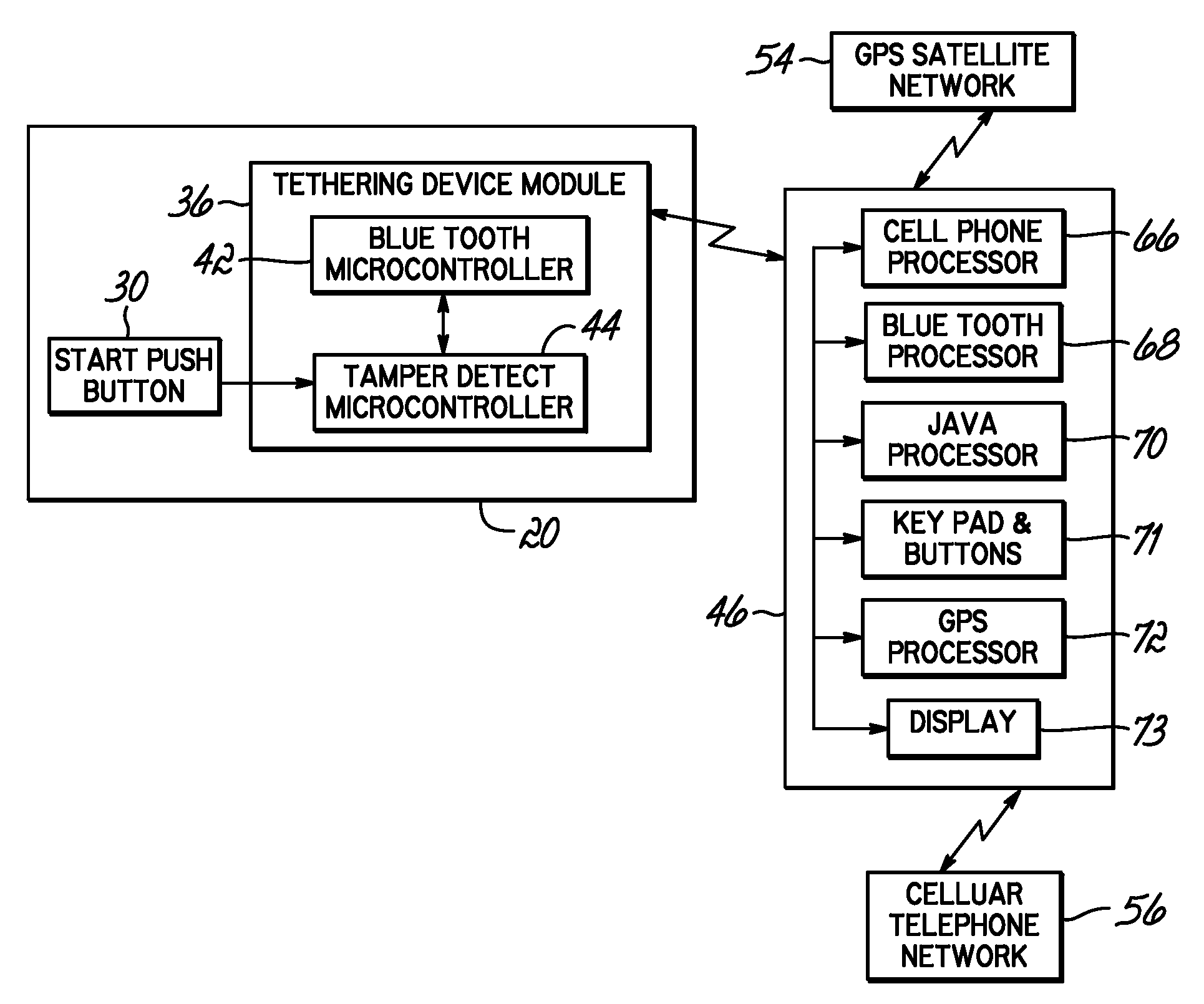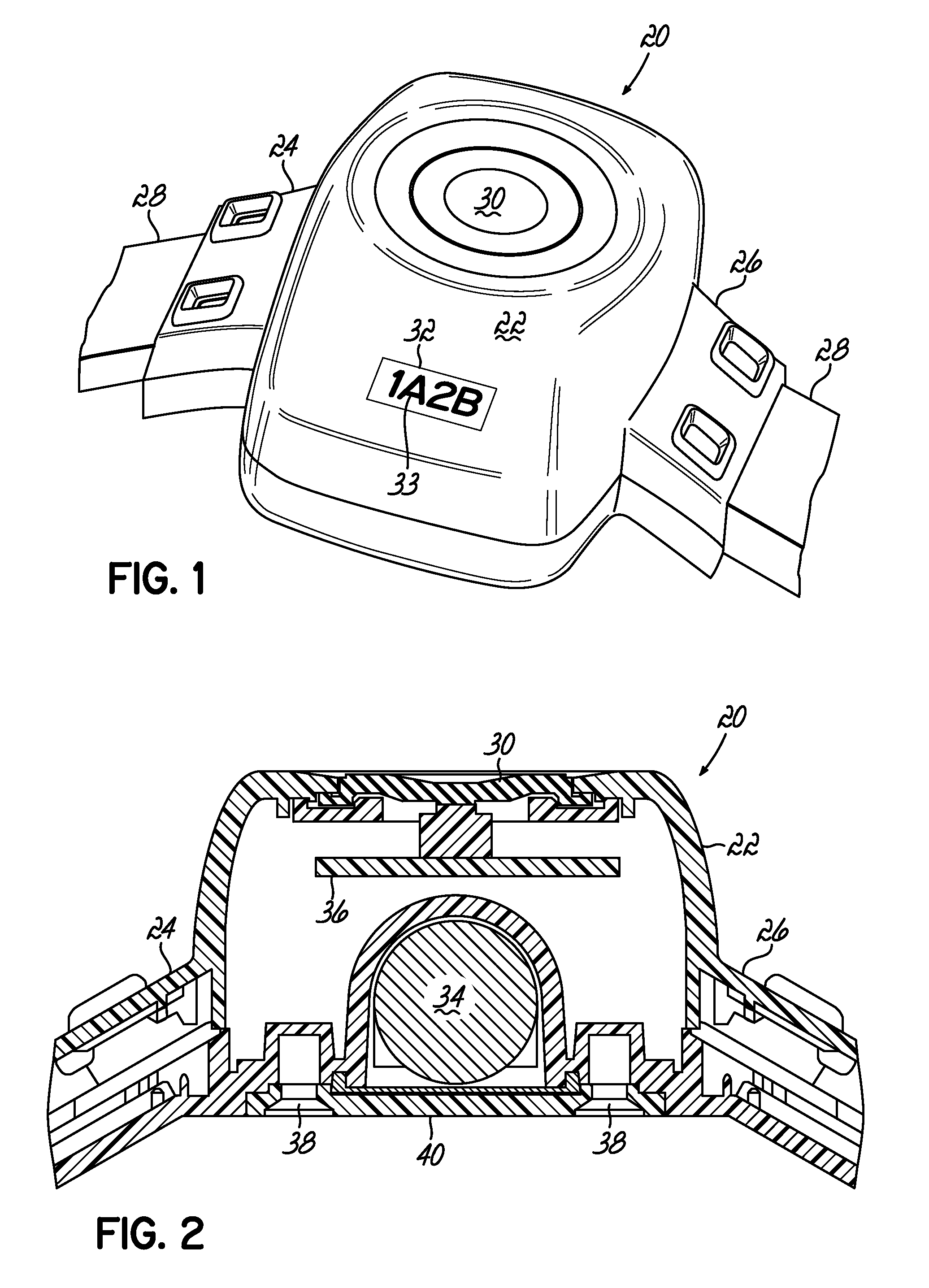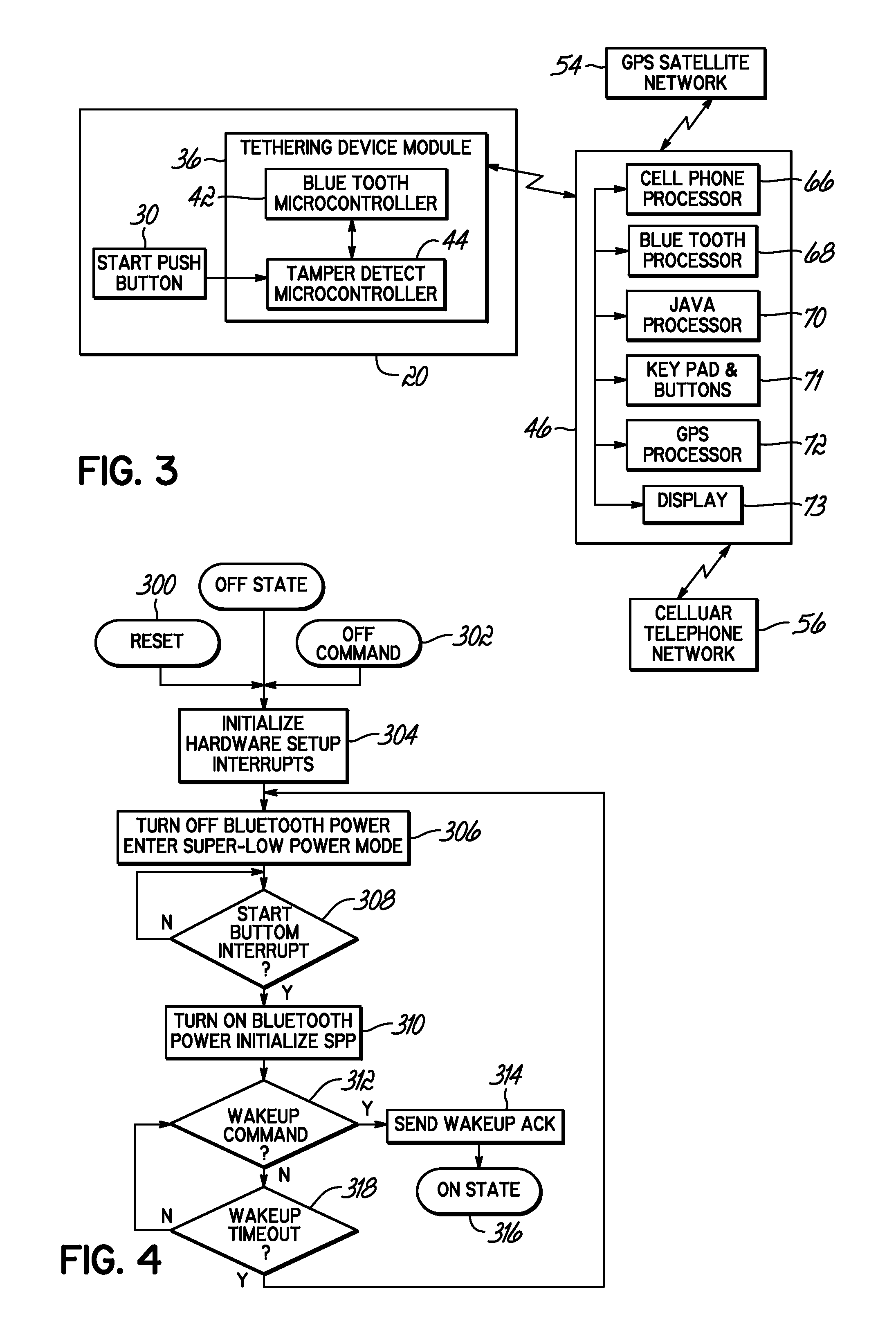Device for Tethering a Person Wirelessly with a Cellular Telephone
a wireless tethering and cellular telephone technology, applied in the field of tracking systems, can solve the problems of unreliable gps units, cumbersome early gps units, and unmanageable caseloads, and achieve the effects of reducing and increasing the number of people on probation and parol
- Summary
- Abstract
- Description
- Claims
- Application Information
AI Technical Summary
Benefits of technology
Problems solved by technology
Method used
Image
Examples
Embodiment Construction
[0024]Referring to FIG. 1, a tethering device 20 has a hollow body 22 with opposed outward extending strap connectors 24, 26. The hollow body 22 has a length of about 66 millimeters (“mm”) and a width of about 46 mm; and therefore, the tethering device 20 is sized to comfortably fit around a user's ankle. A continuous strap 28 is connected at its ends to the connectors 24-26 with pins (not shown) in a known manner. The strap 28 contains electrically and optically conductive elements (not shown) that extend over a full length of the strap. Those conductive elements terminate in connectors 24, 26 in a known manner so that an alarm can be given if electrical and / or optical continuity is interrupted. A Start push button 30 is used to activate the tethering device 20. A label 32 is attached to the body 22 and contains indicia 33, for example, a four digit code that is used to uniquely identify the tethering device 20. The tethering device 20 may be constructed of a rugged and durable mat...
PUM
 Login to View More
Login to View More Abstract
Description
Claims
Application Information
 Login to View More
Login to View More - R&D
- Intellectual Property
- Life Sciences
- Materials
- Tech Scout
- Unparalleled Data Quality
- Higher Quality Content
- 60% Fewer Hallucinations
Browse by: Latest US Patents, China's latest patents, Technical Efficacy Thesaurus, Application Domain, Technology Topic, Popular Technical Reports.
© 2025 PatSnap. All rights reserved.Legal|Privacy policy|Modern Slavery Act Transparency Statement|Sitemap|About US| Contact US: help@patsnap.com



